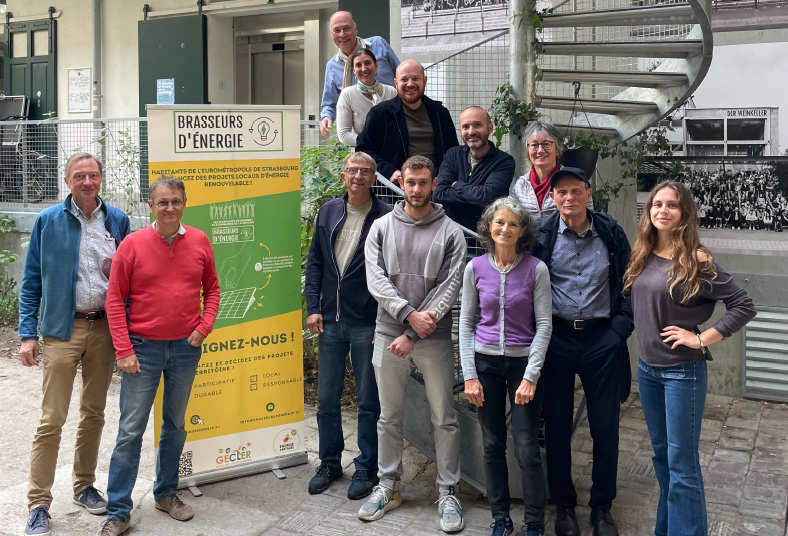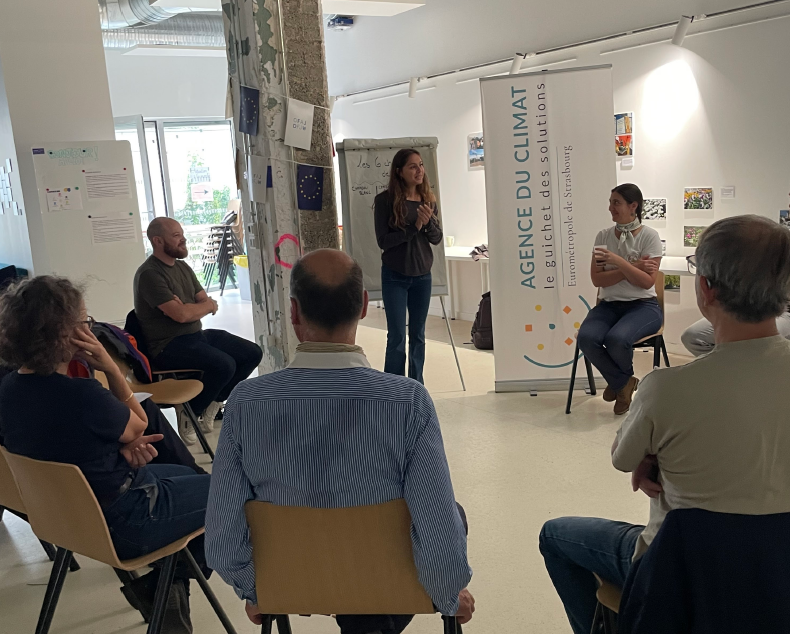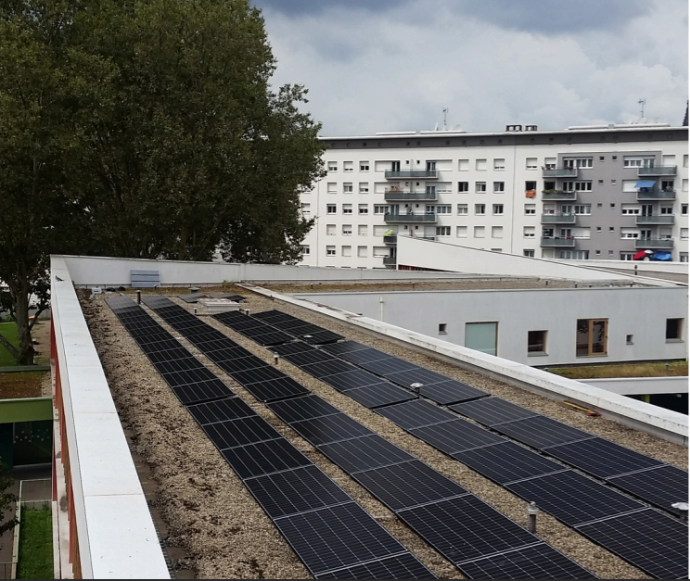In Strasbourg (FR), one of the seven pilot sites of the E2-CUTIES project, a Local Energy Community (LEC) initiative has already installed two photovoltaic (PV) plants on the Louvois Primary School. The first installation is producing electricity that is currently sold entirely to the grid, but the long-term ambition is to shift toward collective self-consumption in Strasbourg’s dense inner-city districts.
Strasbourg LEC: The Louvois Primary School project
The Louvois Primary School, located near Strasbourg’s bustling city centre, is a flagship site of this collaboration. In August 2023, 165m² of solar panels were installed on its rooftop. The first PV plant began generating electricity in February 2024, followed by a second installation that became operational at the end of June 2025. Together, these two plants offer a combined capacity of 69 kWp. For the moment, the energy produced is sold to the city’s main power supplier, feeding renewable energy directly into the grid.
The current model does not yet link production with local consumption. Given the school’s central location and proximity to both residential and commercial districts, the potential for a more integrated local energy system is high. The cooperative’s goal is to move beyond selling to the grid and establish a collective self-consumption model within a two-kilometre radius, engaging nearby households and businesses in the direct use of locally generated renewable energy.
An inspiring public-civic cooperation...
At the heart of the LEC is Les Brasseurs d’Énergie(s), a citizen-led cooperative founded in 2020. Supported by the City and Eurométropole of Strasbourg and closely accompanied by the Agence du Climat, the cooperative demonstrates how grassroots initiatives can shape the energy transition together with public authorities and experts.
The LEC is also about complementing one another. Les Brasseurs d’Énergie(s) brings citizen engagement and local ownership, while the Eurométropole of Strasbourg provides access to rooftops and embeds energy cooperatives into its broader 2030 Climate Plan. The Agence du Climat plays a coordinating role, supporting both the cooperative and the municipality in translating strategy into practice. This collaboration is essential in a city where space is limited and social mobilisation is as important as technical capacity.
... Facing challenges
Yet the LEC also highlights the challenges of pioneering collective self-consumption in a socially diverse, urban environment. Governance is fragile, relying entirely on volunteers on the cooperative side and a municipality without a dedicated LEC mandate. Both actors recognise the need for inclusive participation, trust-building, and accessible communication, especially in inner-city neighbourhoods where energy poverty is common and many residents are transient.
Technical hurdles remain. The cooperative already operates solar installations, but collective self-consumption requires advanced software, data-sharing, and grid integration, which demand cooperation with national utilities.
On the financial side, the cooperative depends heavily on member equity and public subsidies. Upfront costs are high, access to loans is limited, and changes in national feed-in tariffs add uncertainty. The municipality, meanwhile, faces legal and financial risks when entering into partnerships, and both partners lack the stable, long-term funding that would allow them to expand with confidence.
Explaining the benefits of collective self-consumption in clear and accessible terms remains a central task, but engaging and mobilising low-income households and tenants is difficult. Volunteer fatigue on the cooperative side and limited staff capacity within the municipality hinder large-scale outreach.
Moving forward step by step
The next milestone is to define an attractive purchase price that will persuade residents and local businesses to join the scheme. With support from the Agence du Climat and the Eurométropole, the Brasseurs d’Énergie(s) is preparing a communication strategy and an outreach campaign. By the end of the year 2025, they plan to go door-to-door in the pilot area and invite people to a public information meeting in December. This meeting will present the project in detail and build a first list of prospective consumer-members.
In parallel, the cooperative is working to strengthen its governance. On 13 September 2025, members gathered for a team-building workshop organised with the support of the Agence du Climat. The session allowed participants to reflect on their mission, reaffirm their values, and refine their communication approach, while shareholders had the opportunity to share feedback. The atmosphere was overwhelmingly positive.
“I am delighted to see that Brasseurs d’Énergie(s) is moving forward efficiently. Four years after its creation, the cooperative has already installed two solar plants, and soon this energy will be powering homes across Strasbourg. It’s a meaningful and concrete project.” remarked one shareholder.



